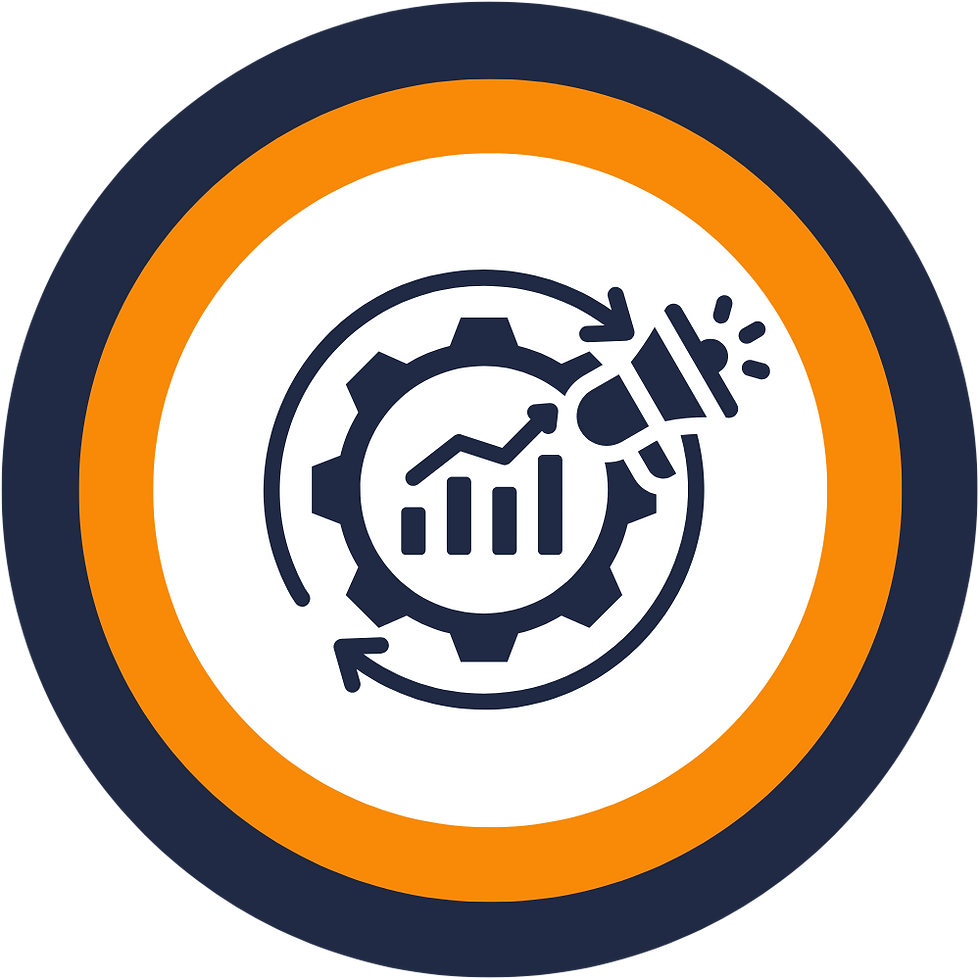Exploring the Mechanics and Benefits of Marketing Automation
- Howard Mann

- Nov 15, 2023
- 2 min read
Updated: Nov 22, 2023

The mechanics of marketing automation revolve around the utilization of specialized software to streamline repetitive marketing tasks. This includes, but is not limited to, automating email campaigns, social media posts, and advertising efforts. The primary objective is not only to enhance efficiency but also to cultivate a more personalized experience for customers. The underlying technology in marketing automation expedites and simplifies these tasks.
So, what transformative effects can marketing automation bring to your business?
Addressing Common Business Challenges: Businesses commonly grapple with challenges such as lead generation and maintaining customer engagement throughout their journey. Moreover, the abundance of collected data often remains underutilized. Marketing automation software emerges as a solution by harnessing data to streamline workflows.
Beyond the Middle of the Funnel: While marketing automation is often perceived as a middle-of-the-funnel tool, predominantly used for nurturing leads via automated email sequences, this approach can inadvertently create a disjointed experience for prospects and customers as they transition from marketing to sales and customer service. A rigid funnel structure may force prospects through predetermined touchpoints, resulting in repetitive content that might not cater to individual needs.
The Holistic Approach to Marketing Automation: The true potential of marketing automation is unleashed when it is strategically deployed across the entire customer lifecycle. Thoughtful integration of marketing automation lays the foundation for establishing robust, long-term relationships with customers. When executed effectively, marketing automation offers three key benefits to your business:
Personalized Workflows: Marketing automation interprets each prospect's actions as valuable data points for your strategy. Manually tracking these behaviors is impractical, but with automation, businesses can leverage this data across multiple channels to comprehend customer needs and deliver tailored content at the opportune moment. These personalized workflows guide qualified prospects toward relevant content, fostering warm leads that can be nurtured into loyal customers.
Streamlined Processes: The real power of marketing automation lies in bringing the entire company together through streamlined processes that prioritize the customer at every stage. By breaking down silos and fostering collaboration, businesses can offer a unified customer experience from the initial touchpoint to post-purchase. Automation eliminates the need for complex hand-off procedures, ensuring that crucial information is automatically stored centrally, facilitating seamless internal workflows.
Getting the Most Out of Marketing Automation: To maximize the benefits of marketing automation, businesses should view it as a blend of software, strategy, and customer-centricity. Integration throughout the business, breaking down silos, and uniting teams with time-saving processes, coupled with a human touch, creates a flywheel effect that propels business growth.
Start by examining the customer journey and identifying touchpoints that can benefit from automation. Utilize a CRM integrated with your marketing automation software to track every customer action as a data point. This data can then guide customers seamlessly through their journey, whether it involves educational content, interaction with a salesperson, or a check-in from customer success.
A well-executed marketing automation strategy synchronizes teams, prioritizes tasks, and facilitates smooth transitions. By embracing automation, businesses not only enhance efficiency but also build enduring relationships with customers.
The question remains: Can you make marketing automation work for your business?
If you need further assistance in implementing marketing automation for your business, feel free to reach out to me.



Comments